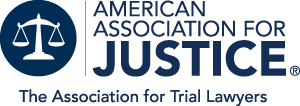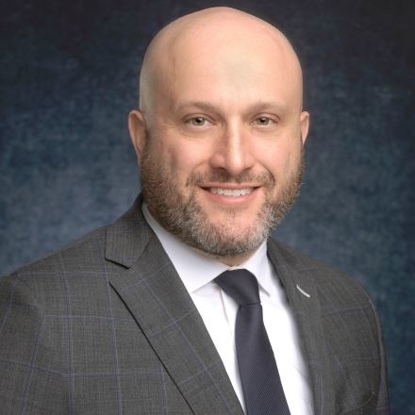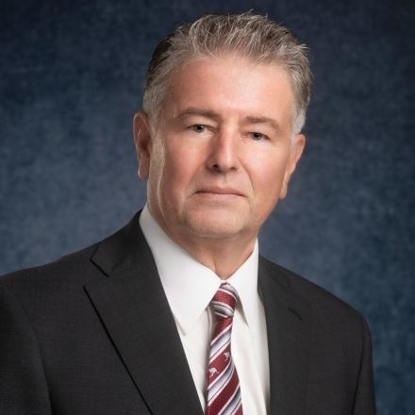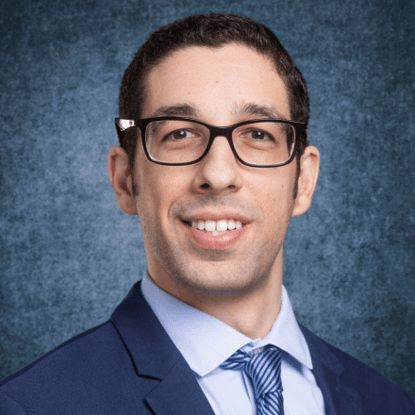
Norfolk Spinal Cord Injury Attorneys
Helping Victims of Spinal Cord Injuries in Norfolk, VA
Spinal cord injuries are among the most devastating injuries a person can suffer. The spinal cord is the main pathway for information to travel between the brain and the rest of the body. When the spinal cord is damaged, the brain can no longer communicate with the body, resulting in paralysis and other serious complications.
Spinal cord injuries are often caused by the negligent or wrongful acts of others. If you or someone you love has suffered a spinal cord injury due to someone else’s negligence, you may be entitled to compensation for your medical bills, lost wages, pain and suffering, and more.
At Kalfus & Nachman PC, we have been representing injured individuals and their families since 1979. Our spinal cord injury lawyers have a proven track record of success in even the most complex cases. We understand the unique challenges you are facing, and we are prepared to secure the maximum compensation possible on your behalf.
Call or fill out our online contact form today to schedule a free consultation with one of our Norfolk spinal cord injury attorneys.
What is a Spinal Cord Injury?
A spinal cord injury is any injury to the spinal cord that results in a loss of function, such as mobility or feeling. The spinal cord does not have to be severed for a loss of function to occur. In fact, in most people with spinal cord injuries, the spinal cord is intact, but the damage to it results in loss of function.
Spinal cord injuries can be classified as either complete or incomplete. With a complete spinal cord injury, the spinal cord is fully severed, and the victim loses all feeling and movement below the site of the injury. With an incomplete spinal cord injury, the spinal cord is partially severed, and the victim may retain some feeling and movement below the site of the injury.
Incomplete injuries can vary widely in terms of the extent and type of function that is preserved. Some common types of incomplete SCIs include:
- Anterior Cord Syndrome: Typically results from damage to the front of the spinal cord, leading to loss of motor function, pain, and temperature sensation, but preservation of some touch and proprioception (awareness of body position).
- Posterior Cord Syndrome: Occurs due to damage to the back portion of the spinal cord, resulting in loss of proprioception (awareness of body position) while maintaining motor function and pain/temperature sensation.
- Central Cord Syndrome: Often caused by hyperextension injuries, leading to damage in the center of the spinal cord. This type of injury usually results in weakness in the arms and hands, while leg function might remain relatively unaffected.
- Brown-Sequard Syndrome: Caused by damage to one side of the spinal cord, leading to loss of motor function and proprioception on the same side as the injury and loss of pain and temperature sensation on the opposite side.
Spinal cord injuries are further classified by the area of the spine in which they occur. The spine is divided into four regions: cervical, thoracic, lumbar, and sacral. The higher the injury occurs on the spinal cord, the more severe the resulting complications will be.
Common causes of spinal cord injuries include:
- Car accidents
- Truck accidents
- Motorcycle accidents
- Pedestrian accidents
- Bicycle accidents
- Slip and fall accidents
- Workplace accidents
- Acts of violence
- Sports injuries
Regardless of the cause, if you or someone you love has suffered a spinal cord injury due to someone else’s negligence, you may be entitled to compensation.
What Are the Symptoms of a Spinal Cord Injury?
The symptoms of a spinal cord injury (SCI) can vary widely depending on the location and severity of the injury. Here are some common signs and symptoms associated with spinal cord injuries:
- Loss of Sensation: This can include the loss of sensation in the extremities (arms, legs), trunk, or any part of the body below the level of the injury. It might manifest as numbness or reduced sensitivity to touch, heat, cold, or pain.
- Loss of Motor Function: Damage to the spinal cord can result in partial or complete paralysis, affecting muscle control and movement. This paralysis can be localized to specific limbs or affect larger parts of the body, depending on the severity and level of the injury.
- Difficulty Breathing or Coughing: Injuries to the upper spinal cord (cervical region) can impact the muscles involved in breathing and coughing. This can lead to difficulties in breathing, shallow breathing, or the need for mechanical assistance to breathe.
- Loss of Bowel or Bladder Control: SCI can affect the nerves responsible for controlling bowel and bladder function, leading to incontinence or difficulty in passing urine or stools.
- Muscle Spasms or Spasticity: After a spinal cord injury, some individuals experience involuntary muscle spasms or increased muscle tone (spasticity) in the affected limbs or areas.
- Sexual Dysfunction: Damage to the spinal cord can affect sexual function, leading to changes in sensation, arousal, fertility, or the ability to achieve or maintain an erection or achieve orgasm.
- Changes in Blood Pressure or Heart Rate: Severe spinal cord injuries, especially those higher up in the neck (cervical spine), can disrupt the autonomic nervous system, leading to blood pressure fluctuations, abnormal heart rate, or issues with temperature regulation.
- Pain or Intense Sensations: Some individuals may experience neuropathic pain, which can be chronic and intense, or exaggerated responses to normal stimuli (hyperesthesia).
It's important to note that these symptoms can present immediately after the injury or develop gradually. Additionally, not all symptoms manifest in every case of spinal cord injury, as the effects can vary widely based on the specific location and severity of the damage.
How Are Spinal Cord Injuries Treated?
There is no cure for spinal cord injuries, but there are several treatments available that can help manage the symptoms and improve the victim’s quality of life. The type of treatment recommended will depend on the severity and location of the injury.
Some of the most common treatments for spinal cord injuries include:
- Immobilization
- Medication
- Surgery
- Rehabilitation
Immobilization is often the first line of treatment for a suspected spinal cord injury. Immobilization involves using a backboard or other device to keep the victim’s head, neck, and back as still as possible. This helps prevent further damage to the spinal cord.
Medication may be used to help manage the symptoms of a spinal cord injury. For example, corticosteroids may be used to help reduce swelling and inflammation in the spinal cord. Other medications may be used to help manage pain, muscle spasticity, and other symptoms.
Surgery may be necessary to remove fragments of bone, foreign objects, or herniated discs that are compressing the spinal cord. Surgery may also be used to stabilize the spine and prevent future injuries.
Rehabilitation is a critical part of the treatment process for a spinal cord injury. Rehabilitation may involve physical therapy, occupational therapy, and other types of therapy to help the victim regain as much function as possible. Rehabilitation may also involve counseling and other types of therapy to help the victim cope with the emotional and psychological challenges of a spinal cord injury.
How Can a Spinal Cord Injury Lawyer Help?
At Kalfus & Nachman PC, we understand the unique challenges you are facing, and we are here to help. Our team will take the time to listen to your story, answer your questions, and address your concerns. We will keep you informed and involved at every stage of your case, and we are always just a phone call away if you need us.
Our Norfolk spinal cord injury lawyers will conduct a thorough investigation into your accident or injury to determine who was at fault and what caused your injuries. We will gather all available evidence, including accident reports, medical records, and eyewitness testimony. We will also consult with experts, such as accident reconstruction experts and medical experts, to help build a strong case on your behalf.
Do not hesitate to contact us today at to let us fight for you while you focus on recovering from your injuries.

How Is Kalfus & Nachman Different?
-
You Will Pay No Fees Unless We Win Your Case
-
We Have Recovered Millions of Dollars for Our Clients
-
Our Attorneys Are Well-Equipped to Fight Insurance Companies
-
We Have Successfully Handled Thousands of Cases Since 1979
-
We are a Full-Service Firm with Multiple Locations
-
Se Habla Español

Awards & Accolades

We Mean Business
Read Our Recent Case results
-
$10.9 Million Traumatic Brain Injury
-
$10.5 Million Truck Accident
-
$7 Million Auto Accident
-
$5.147 Million Truck Accident
-
$2.15 Million Premises Liability

Meet Our Team
Tell Them We Mean Business
-
 Paul R. Hernandez Attorney
Paul R. Hernandez Attorney -
 A.J. Kalfus of Counsel
A.J. Kalfus of Counsel -
 Stuart L. Nachman of Counsel
Stuart L. Nachman of Counsel -
 Richard F. Aufenger, III of Counsel
Richard F. Aufenger, III of Counsel -
 Jesse M. Suit III of Counsel
Jesse M. Suit III of Counsel -
 Thomas A. Fitzgerald, II Attorney
Thomas A. Fitzgerald, II Attorney -
 Seth D. Scott Attorney
Seth D. Scott Attorney -
 Christopher I. Jacobs Attorney
Christopher I. Jacobs Attorney -
 Michael J. Levens Attorney
Michael J. Levens Attorney -
 Colin P. O'Dawe Attorney
Colin P. O'Dawe Attorney -
 Neal C. Schulwolf Attorney
Neal C. Schulwolf Attorney -
 Deborah B. Vaughn Attorney
Deborah B. Vaughn Attorney -
 Michael Sternberg Attorney
Michael Sternberg Attorney -
 Olivia T. Donahue Attorney
Olivia T. Donahue Attorney -
 Brian A. Thomasson Attorney
Brian A. Thomasson Attorney -
 Jeffry A. Sachs Attorney
Jeffry A. Sachs Attorney -
 Gregory E. Camden Attorney
Gregory E. Camden Attorney -
 Gregory L. Sandler, Esq. Attorney
Gregory L. Sandler, Esq. Attorney -
 Massimo Morabito Attorney
Massimo Morabito Attorney



































-NT.2502271247084.png)